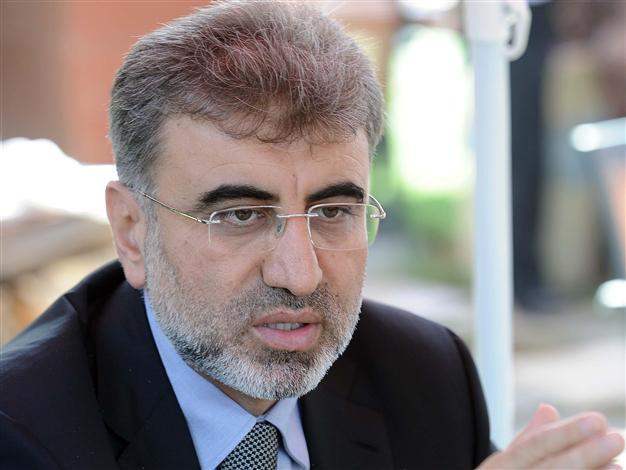Arbil crisis to bring Turkey, KRG closer
ARBIL - Hüriryet Daily News

Minister Yıldız says Iraq will ‘make amends for its embarrassment.’
Baghdad’s refusal to allow Turkish Energy Minister Taner Yıldız to fly directly from Istanbul to Arbil left the participants of an energy conference he was supposed to attend incredulous while raising speculation that the incident will drive Ankara and Arbil closer together.“With the exception of Americans, who could do business in a region where a ministerial plane is not even allowed to land?” said a representative of an energy company that is not present in Arbil.
“This is clearly an insult to the Turks. I wonder how the Turkish government will respond to that,” said an energy expert. “At what point will Ankara say, ‘I’ve had it with Baghdad; I will concentrate on the Kurdish region?’”
Ankara warms up to KRG’s direct export
Baghdad’s latest move against Turkey is expected to further accelerate the rapprochement between Ankara and the Kurdistan Regional Government (KRG). Relations between Ankara and Baghdad have been strained by Turkey’s claims that Iraqi Prime Minister Nouri al-Maliki is acting out of sectarian interests and seeking authoritarian rule. Al-Maliki accuses Turkey of interfering in Iraq’s internal affairs – a view reinforced by Turkey’s refusal to extradite Iraqi Vice President Tariq al-Hashemi, who has been sentenced to death in absentia. Turkey’s improved relations with the KRG, which also sharply disagrees with Baghdad over the management of the region’s natural resources, is an additional concern for al-Maliki’s government.
Ankara is warming up to the idea of KRG directly exporting its oil and gas, an option that Turkey opposed until recently in the belief that it would be the latest step toward Kurdish independence.
Yet the results of explorations showing that the Kurdish region sits on huge reserves of oil and gas has put Iraq’s Kurdish north on the world energy map. Although oil was first discovered in Kirkuk, the potential of the region has never been fully explored.
“Whatever few wells were open by the Arabs in the north were hastily closed down. Arabs did not want the Kurds to access oil and gas,” said the official of an energy company active in the region. In addition to the region’s newly discovered potential, Iraq’s economic nationalism is also pushing energy companies to the north. Iraq’s government is offering technical service agreements to international oil companies (IOC) instead of production-sharing contracts, which is the main point of disagreement between Baghdad and Arbil, as the KRG has been signing production-sharing contracts which are much more attractive to IOCs. Baghdad, meanwhile, has threatened to blacklist companies that sign deals with the KRG. Energy-hungry Turkey, which also needs to desperately diversify its supply, is the natural market for Kurdish oil and gas, and Ankara does not want to lag behind the large number of companies that have been rushing into the region.
The KRG is said to be luring Ankara by offering it shares in production agreements, meaning that the question is no longer whether Turkey will strike energy deals with the KRG at the expense of antagonizing Baghdad, but when and how.
















